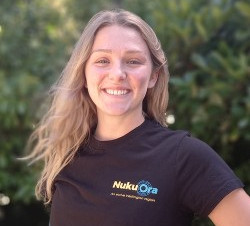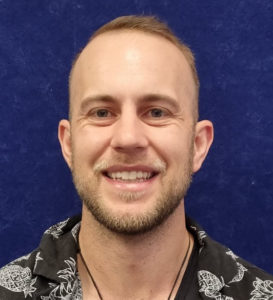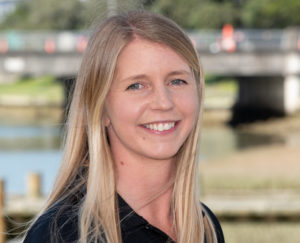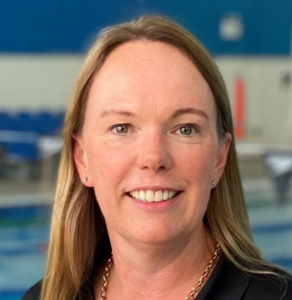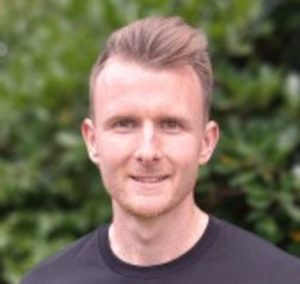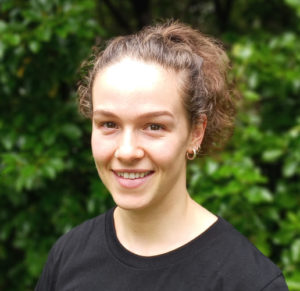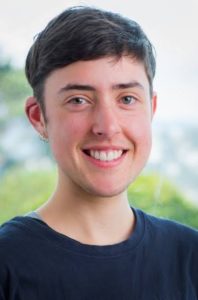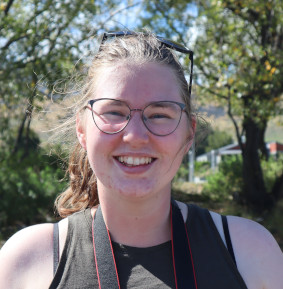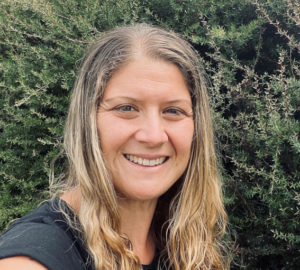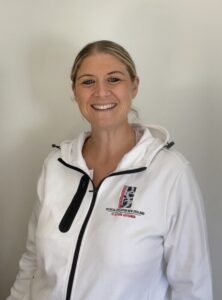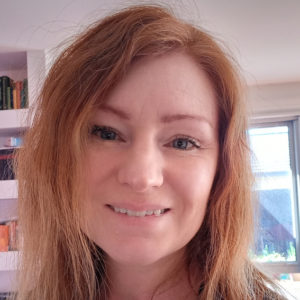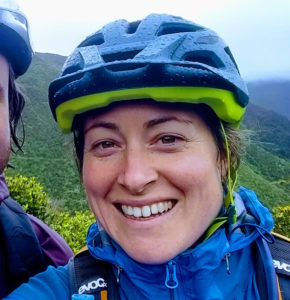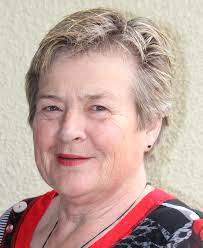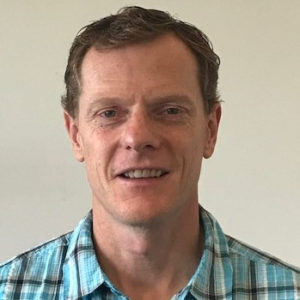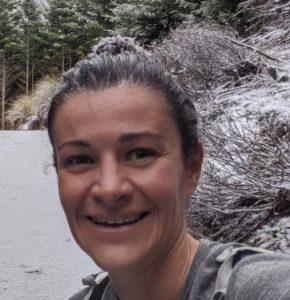This programme offers a range of opportunities to strengthen your practice and understanding of the Health and Physical Education learning area; learn about different approaches in physical education, health education and outdoor education; and discover useful and new resources.
- Watch them on your own or with your colleagues in a staff professional learning session.
- The recordings are about 45-minutes long.
How to put the Te Whare Tapa Whā model into action – the basics
Presenteded by Jazz Scott, Healthy Active Learning Advisor at Nuku Ora
Does the Te Whare Tapa Whā model interest you but you’re not quite sure how to apply it in a fun and engaging way for your tamariki? Watch this session that explores the basics of the Te Whare Tapa Whā model, how we can get our tamariki active whilst learning about the model, and explores ways you can integrate it into your Health and Physical Education lessons/planning
Jazz has a background in teaching and now supports school leaders/teachers around the Wellington region to provide quality Health and Physical Education and physical activity opportunities. Jazz’s passion for her work comes from the wants for all tamariki have fun and positive experiences in physical activity to set them up for great social experiences as well as lifelong participation.
Finding Tau
Presented by Tom Hobbs, Whakarongo School
Tau is balance, and balance is a universally important concept when it comes to living a healthy life. At Whakarongo School, our Health and Physical Education team have developed a local curriculum that harnesses the concept of Tau and delivers the Health and Physical Education curriculum in a way that is more accessible to staff. This workshop focused on the benefits of developing a local Health and Physical Education curriculum at your kura and the importance that Tau (balance) has right across the curriculum.
Ko Tom toku ingoa, I am a Health and Physical Education enthusiast at an amazing full primary school in Palmerston North. Over my 7 years of teaching, I have held various roles around and Physical Education, Wellbeing and (more recently) Cultural Competency. I enjoy facilitating professional development in these areas as well as sharing resources and ideas.
Changing the narrative around food, nutrition, and wellbeing for our tamariki
Presented by Kate Rhodes, NZ Registered Dietitian, Sport Gisborne Tairawhiti
Learn what to say, (and what not to say) when it comes to food, nutrition, and body image concerns. Understand what a positive and holistic approach to food and wellbeing looks like, and why it’s not just about getting our tamariki to eat their fruit and vegetables. Kate also shared a nutrition resource and kai lesson plans that can be utilised in your mahi.
Kate works alongside the Manawakura team who deliver the Healthy Active Learning initiative in Te Tairawhiti (Gisborne). A specialist in food, nutrition, and holistic wellbeing, Kate’s passionate about building teacher confidence in these areas.
Water Skills for Life
Presented by Karen Dalldorf, National Education and Water Safety Manager for Swimming New Zealand
Water Skills for Life is the national standard for aquatic education in kura and primary schools. It is linked to the curriculum and gives tamariki the skills and knowledge they need to assess risk and make smart decisions around water. Water Skills for Life can be taught in the pool, local water environment and in the classroom. This session outlined the programme and included lots of practical teaching tips.
Karen has been involved in the Aquatic Industry for over 20 years. Having always had a love for the water, which meant a natural progression to teaching Swimming and Water Safety. Starting out as a Swim Instructor, Managing a Private Swim School to her current role. Karen brings passion and enthusiasm for Water Safety Education which aims at reducing the Drowning Statistics in New Zealand. She loves sharing ideas and activities teachers and swim instructors can use to ensure their students not only have fun but learn about being safe while in the water.
Teaching school values through physical activity – learning THROUGH movement
Presented by Zak Brown, Healthy Active Learning Advisor, and Adelaide Gwynne, Healthy Active Learning Community Connector, both from Nuku Ora
This session explored practical examples of how positive values can be taught through movement and games. The contexts can be connected to a ‘big picture’ long term physical education plan revolving around the values your school lives by.
Born in Blackburn, England, Zak has a broad range of experience within education, sport and childcare. Having worked in five different countries, Zak is now applying his passion about the value of physical activity in schools, which he believes goes far beyond just health and Physical Education.
Adelaide was born and bred in Ōtautahi but moved to Wellington last year. She has a background in health promotion and is passionate about building resilient communities. Adelaide believes that promoting the health of tamariki and rangatahi is the vehicle to creating sustainable change within our communities.
New resources to support creating rainbow inclusive schools
Presented by Alex Kerr and Trish Lastovicka
InsideOUT Kōaro recently launched a suite of new and updated resources, with support from the Ministry of Education, for schools to support their takatāpui and rainbow students. These written and video resources include information on supporting transgender, gender diverse and intersex young people to thrive and be safe at school, creating rainbow-inclusive policies and procedures, and starting and strengthening rainbow diversity groups. This session looked at these resources in more depth and discuss ways you can translate the content into action, to create safer learning environments for all students and whānau in your schools and kura.
Alex Ker is the Resource Development Lead at InsideOUT Kōaro and a transgender health researcher. InsideOUT Kōaro is a national organisation working to make schools and communities safer for takatāpui and rainbow young people in Aotearoa.
Trish Lastovicka (she/her) is the Central South Island Coordinator for InsideOUT, based in Queenstown. She specialises in working with young people, as well as people who work alongside young people to create the best outcomes. Outside of work, she is an ITF Taekwon-Do practitioner, a reader, a photographer, and an Otago University graduate, with a background in English, Linguistics, and Classics.
Revisioning school camps
Facilitated by Sophie Watson, Co-chair, Education Outdoors New Zealand
Camp is often one of the most memorable schooling experiences for our young people. Given the various changes to education outside the classroom practice, such as the donations scheme and an increased focus on equitable and culturally responsive pedagogies, we are in the perfect position to review our camp experiences. This workshop is designed to provide you with the tools and inspiration to ‘re-vision’ your school camp experiences. You can look forward to a thought-provoking and interactive workshop that supports localised, innovative and student-centred school camp programmes that better align with the New Zealand Curriculum.
Sophie is passionate about all things education outside the classroom and outdoor education. She has held numerous roles, including previously as a secondary teacher for over a decade. Sophie is currently involved in a range of educational projects, through her work as a researcher at the New Zealand Council for Educational Research, and as a professional development facilitator and co-chair at Education Outdoors New Zealand.
MoveWell in a Nutshell
Presented by Marisa McKay, Subject Advisor – Primary and Intermediate, Physical Education New Zealand
MoveWell is the newest teacher resource for physical education. Aimed specifically at primary and intermediate teachers, MoveWell was written and produced in New Zealand. Different from any other physical education resource you have seen in the past, MoveWell is grounded in pedagogy and supports the development of the whole child through physical education. This webinar explored what makes this resource unique and how to use it in your school.
Marisa is an experienced, registered teacher and skilled facilitator, with a passion for physical education. She works with leaders and teachers to evaluate their current curriculum, planning and pedagogical practice and identify ways to improve outcomes for learners in physical education. In 2022 she facilitated a series of MoveWell workshops across the country, supporting teachers to implement the resource effectively with their students.
Planning for chaos
Presented by Marisa McKay, Subject Advisor – Primary and Intermediate, Physical Education New Zealand
Doing the same thing over and over, expecting different results? This session introduced a supportive framework to consider when it comes to planning. The session included ways to support integration, explicit learning, and how to explore a range of different contexts in physical education to keep the engagement and interest high for both teachers and students.
Marisa is an experienced, registered teacher and skilled facilitator, with a passion for physical education. She works with leaders and teachers to evaluate their current curriculum, planning and pedagogical practice and identify ways to improve outcomes for learners in physical education.
Fire and knives
Presented by Celia Hogan
Fire is one of the four classic elements in ancient Greek Mythology. Many cultures view fire as a symbol of knowledge and wisdom. Māori believe that fire is an intrinsic part of the natural environment and it connects through their whakapapa to Ranginui and Papatūānuku. Fire is a wonderful addition to any education outside the classroom programme when used with purpose. This session looked at how to teach children to safely use knives, what knives can be used for, how to start fire using a flint and steel and the safety considerations to consider when using knives and fire in your outdoor programmes, and curriculum.
Strengthening relationships and sexuality education: a suite of resources
Presented by Dr Rachael Dixon, Co-chair of NZHEA and lecturer at the University of Canterbury
In 2020, the Ministry of Education published Relationships and Sexuality Education: A guide for teachers, leaders and boards of trustees (years 1-8). To support the implementation of the guide, Rachael led a team at the University of Canterbury and the New Zealand Health Education Association to develop a suite of support materials. In this session, Rachael introduced a selection of these support materials and participants had the opportunity to ask questions and share experiences of planning and teaching relationships and sexuality education.
Rachael has been a secondary school teacher and provider of professional learning and development for teachers in the Health and Physical Education learning area across New Zealand. In her current role at the University of Canterbury she teaches the Bachelor of Health Sciences as well as initial teacher education in the area of health education. She is an experienced resource developer and a firm advocate for quality health education.
Gender equity in EOTC
Presented by Sophie Watson, Co-chair, Education Outdoors New Zealand
If you deliver EOTC (that’s ALL teachers) this session is for you! Outdoor learning experiences can enrich our students’ learning, however for some of our tamariki being outdoors can present additional challenges. This session considered the specific needs of students who may be menstruating, as well as for those who are transgender, intersex or gender diverse. At the end of this thought-provoking and interactive session you will have a better understanding of how to develop gender inclusive practices in EOTC and have a range of tools to support you in this mahi.
Sophie is passionate about all things education outside the classroom and outdoor education. She has held numerous roles, including previously as a secondary teacher for over a decade. Sophie is currently involved in a range of educational projects, through her work as a researcher at the New Zealand Council for Educational Research, and as a professional development facilitator and co-chair at Education Outdoors New Zealand.
Insights from the NMSSA – raising achievement in Health and Physical Education
Presented by Libby Paterson
Otago University, Teaching Fellow Victoria University of Wellington
Have you seen the Insights for Teachers resource? It is great for critiquing your own planning, teaching and learning of both Health Education and Physical Education. Libby introduces the Insights for Teachers National Monitoring Study of Student Achievement (NMSSA) Health and Physical Education 2019 report, and how it can help you to provide quality assessment of your students’ learning.
Libby is a facilitator of the EOTC Management PLD that is run by Education Outdoors New Zealand each year throughout Aotearoa. She has a long career in education, starting in primary and secondary teaching before moving to the tertiary sector. Libby has been both a facilitator and creator of professional learning and development packages that are responsive to teachers’ needs and that of their ākonga, based on evidence and research.
Teaching mental health education: NZCER’s mental health education and hauora resource
Presented by Dr Rachael Dixon, Co-chair of NZHEA and lecturer at the University of Canterbury
This session introduced the free resource and discussed ways how you can integrate it into your teaching and learning programmes. The resource is designed to support learning in the HPE mental health key area of learning in years 7-11. Activities in the resource support critical thinking within topics such as body image, personal identity and self-worth, expressing feelings and managing emotions, and interpersonal skills.
EOTC and safety
Presented by Libby Paterson, Otago University, Teaching Fellow Victoria University of Wellington
Has your school engaged with the Ministry of Education guidelines for EOTC? Is your school implementing good practice systems? If you would like to learn more about understanding and implementing good practice processes in EOTC and where to access the most current resources, watch this webinar recording.
Libby is a facilitator of the EOTC Management PLD that is run by Education Outdoors New Zealand each year throughout Aotearoa. She has a long career in education, starting in primary and secondary teaching before moving to the tertiary sector. Libby has been both a facilitator and creator of professional learning and development packages that are responsive to teachers’ needs and that of their ākonga, based on evidence and research.
Revisioning school camps
Presented by Sophie Watson, Co-chair, Education Outdoors New Zealand
Camp is often one of the most memorable schooling experiences for our young people. Given the various changes to education outside the classroom practice, such as the donations scheme and an increased focus on equitable and culturally responsive pedagogies, we are in the perfect position to review our camp experiences. This session provides you with the tools and inspiration to ‘re-vision’ your camp programmes to be more localised, innovative and student-centred and better aligned with the New Zealand Curriculum.
Sophie is passionate about all things education outside the classroom and outdoor education. She has held numerous roles, including previously as a secondary teacher for over a decade. Sophie is currently involved in a range of educational projects, through her work as a researcher at the New Zealand Council for Educational Research, and as a professional development facilitator and co-chair at Education Outdoors New Zealand.
Revisioning school camps
Facilitated by Sophie Watson, Co-chair, Education Outdoors New Zealand
Camp is often one of the most memorable schooling experiences for our young people. Given the various changes to education outside the classroom practice, such as the donations scheme and an increased focus on equitable and culturally responsive pedagogies, we are in the perfect position to review our camp experiences. This workshop is designed to provide you with the tools and inspiration to ‘re-vision’ your school camp experiences. You can look forward to a thought-provoking and interactive workshop that supports localised, innovative and student-centred school camp programmes that better align with the New Zealand Curriculum.
TBC
STEPs to success for everyone in PE
Facilitated by: James McIntyre and Lynn Kilpatrick, Healthy Active Learning Advisors, Sport Auckland
One of the greatest challenges teachers face in physical education is how to design learning that caters to the varied needs of all of their students. In this workshop we’ll explore how Halberg’s STEP model can be utilised to meet the needs of all students. Come prepared for light movement as we share experiences and collaborate to understand how to enable all of your learners to become confident and successful in physical education.
James and Lynn are experienced primary and secondary school teachers who are passionate about helping all students have positive experiences in health and physical education. As Healthy Active Learning Advisors they support primary and intermediate teachers in the planning and delivery of quality health and physical education, sport, play and physical activity experiences for tamariki.
All sessions
A speed date with the Health and Physical Education Curriculum
This workshop will take a deep dive into the Health and Physical Education curriculum and look specifically at ways we can use it to support teaching in physical education. We will expand your knowledge of the underlying concepts and the role they play in teaching and learning. We will also look at strengthening your understanding of the strands and achievement objectives in the curriculum and how to best use them when planning physical education at your school.
Join Marisa to break open and refresh what’s inside the curriculum and how you can use it.
Finding purpose in Māori games
We are here to inspire you and share our journey of how we have taken Māori games into schools. In this workshop we will play a variety of Māori games and discuss ways that they can be connected to your teaching program so the learning becomes richer and more meaningful for your students. This knowledge will also help grow teachers’ confidence and knowledge to deliver Māori games in the classroom.
Pasifika games
Info about the session coming soon
Facilitated by Sarah Oto
Strengthening community consultation
At least once every two years, boards of trustees are required to produce a written statement about how the school will implement health education. The legislation requires schools to:
- inform the school community about the content of the health education components of the curriculum
- consult with members of the school community regarding the way in which the school should implement health education
- describe, in broad terms, the health education needs of the school’s students.
In this workshop we will explore how you can engage with your community so that this consultation is meaningful and empowering for whānau, tamariki and kura.
Facilitated by Vicki Nicolson
EOTC and safety
Has your school engaged with the Ministry of Education guidelines for education outside the classroom (EOTC)? Is your school implementing good practice systems? If you would like to learn more about understanding and implementing good practice processes in EOTC then this workshop is for you.
Teaching mental health education: NZCER’s mental health and hauora resource
If you are keen to find out more about this free resource and how you can integrate it into your current teaching and learning programmes, come along to this hands on, practical session where you will try out a number of fun activities. The activities will showcase the development of critical thinking within topics such as body image, feelings and emotions and interpersonal skills.
Facilitated by Kathryn Wells
DYI school camping
Tight budgets, COVID, and staffing challenges can all play havoc with school camp! In this practical workshop you will learn how to create a meaningful, engaging and fun camp experience on your school grounds. You will get the opportunity to ‘play’ with a range of simple, learning-rich, and fun camp and crafting activities. Worried about parental expectations? Don’t worry, we’ll discuss ways you can manage that too! The ideas and activities we cover in this workshop are also relevant for those who run camps away from school. Bring a colleague with you
Quality in primary physical education
In this workshop we will experience what a quality physical education lesson should include. We will look critically at the quality of some common practices and how we can find ways to strengthen and improve them. The session will look at explicit teaching strategies, inclusive practices for all students, and what learning can look like in physical education.
Fill your kete with helpful approaches that you can introduce to your classroom after the holidays.
Unpacking and embedding the new mental health education guide
In this session we will unpack the new mental health education guide, discuss the ways that it may impact your teaching practice and look at how you can embed the themes and ideas into your teaching and learning programmes.
Facilitated by Jenny Robertson and Kathryn Wells
Insights from the NMSSA – raising achievement in Health and Physical Education
Have you found this document? It is a great resource for critiquing your own planning, teaching, and learning of both Health Education and Physical Education. Come and learn about the innovative ideas (in the Insights for Teachers National Monitoring Study of Student Achievement (NMSSA) Health and Physical Education 2019 report) that can be used to provide quality assessment of your students’ learning.
Designing learning to develop critical thinking
Critical thinking is an essential competency for learning in health education, and for all future focused learning. NMSSA reporting shows that students’ capacity for critical thinking drops off considerably between years 4 and 8. This presentation and discussion will revisit a selection of initial teacher education materials to highlight the importance of constructivist and transformational teacher pedagogy as a way to support the development of students’ capabilities for critical thinking, with examples of health education learning activities that feature among these ways of teaching
Facilitated by Jenny Robertson
Engaging with Mātauranga Māori in an outdoor context –a questioning framework
If you would like support to engage with mātauranga Māori within an outdoor education context then come along and hear some considerations and explore what you can do. We are all in different places with our own knowledge of mātauranga Māori and for some of us this will seem like quite a challenge when exploring these considerations, others are implementing much of this in a very genuine way. A workshop to share, support and encourage working towards honouring Te Tiriti o Waitangi.
How do we plan for quality health education learning?
What does quality health education learning look like, sound like and feel like? How can we make sure we are planning for critical thinking in health? We will look at the critical thinking framework developed by NMSSA and explore how we can deepen understanding for quality health education learning.
Facilitated by Vicki Nicolson
Backyard Atua Matua
Info about the session coming soon
Facilitated by Darryl Crawford
Inclusive school policies and practices
Info about the session coming soon
Presented by Alex Ker
Inclusive interschool events
Info about the session coming soon – classroom.
Presented by Darren Houston, Zak Brown, and Tom Hobbs
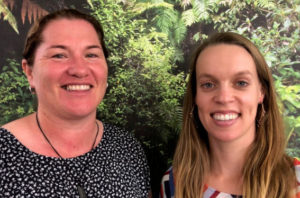
Kimiora Insley
Healthy Active Learning Advisor, Sport Bay of Plenty
Amy McMahon
Healthy Active Learning Project Lead, Sport Bay of Plenty
Kimiora and Amy bring passion and purpose when it comes to Māori games in a primary school setting. They have a wealth of experience in physical education behind them from a wide variety of contexts and settings. Their current roles see them supporting primary and intermediate teachers in the planning and delivery of quality health and physical education, sport, play, and physical activity experiences for tamariki.
Kimiora and Amy’s workshop is
Finding purpose in Māori games
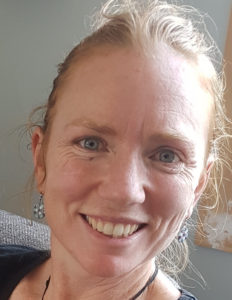
Sophie Hoskins
Outdoor Education Teacher, Education Outdoors New Zealand Kaiārahi
Sophie is a secondary school outdoor education teacher who loves enabling young people to get outside, have adventures and connect with their place. She has been Education Outdoors New Zealand kaiārahi for the past four years, supporting all teachers with anything related to education outdoors.
Sophie’s workshop is
Engaging with Mātauranga Māori in an outdoor context – a questioning framework
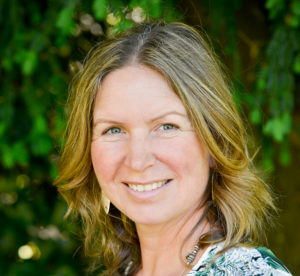
Celia Hogan
Nature Education Specialist and Founder of Little Kiwis Nature Play
Little Kiwis Nature Play is a provider of professional development programmes focused on embedding outdoor philosophies and nature education into early childhood education centres and primary schools across New Zealand. Celia is an engaging public speaker and has over 20 years’ experience working in outdoor education across early childhood education, primary, secondary, and tertiary.
Celia’s workshop is
Fire and knives
